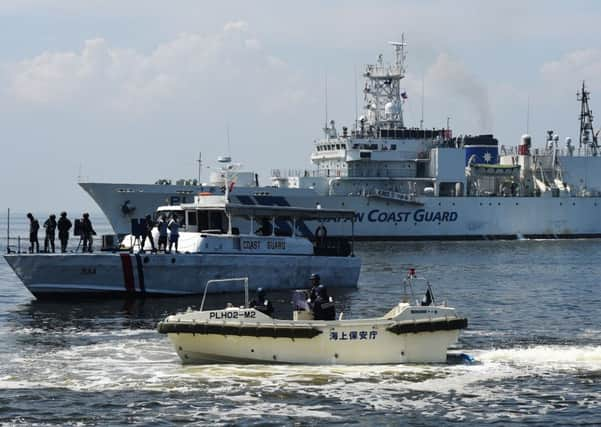China may declare air defence zone after South China Sea ruling


Vice-foreign minister Liu Zhenmin said Beijing could declare an air defence identification zone over the waters if it felt threatened, a move that would sharply escalate tensions. But Beijing also extended an olive branch to the new Philippines government, saying the nation would benefit from co-operating with China.
The Philippines, under a UN treaty governing the seas, had sought arbitration in 2013 on several issues related to its long-running territorial disputes with China. In its ruling on Tuesday, the tribunal found that China’s far- reaching claims to the South China Sea had no legal basis and that Beijing had violated the Philippines’ maritime rights by building up artificial islands and disrupting fishing and oil exploration.
Advertisement
Hide AdAdvertisement
Hide AdWhile introducing a policy paper in response to the ruling, Mr Liu said the islands in the South China Sea were China’s “inherent territory” and blamed the Philippines for stirring up trouble.
“If our security is being threatened, of course we have the right to demarcate a zone. This would depend on our overall assessment,” he said. “We hope that other countries will not take this opportunity to threaten China and work with China to protect the peace and stability of the South China Sea, and not let it become the origin of a war.”
In 2013, China set up an air defence identification zone over disputed islands in the East China Sea, requiring all aircraft entering the area to notify Chinese authorities or be subjected to “emergency military measures” if they disobey orders from Beijing. The US and others refuse to recognise the zone.
While blaming the previous Philippine government for complicating the dispute by seeking arbitration, Mr Liu said China remains committed to negotiations with the Philippines and noted new Philippine president Rodrigo Duterte’s positive remarks on the issue.
“After the storm of this arbitration has passed, and the sky has cleared, we hope this day [of negotiations] will come quickly, but whether it can come, we still have to wait,” Mr Liu said, adding that China believed co-operation would also bring Filipinos “tangible benefits”.
Mr Duterte is navigating a tightrope in which he wants to revive relations with Beijing while being seen as defending the major victory the country has won through arbitration.
Former Philippine president Benigno Aquino III, who initiated the case, said the ruling brought clarity that “now establishes better conditions that enable countries to engage each other, bearing in mind their duties and rights within a context that espouses equality and amity”.
Former Philippine foreign secretary Albert del Rosario, who spearheaded the filing of the arbitration complaint against China in 2013, said: “The award further affirms our collective belief that right is might and international law is the great equaliser among states.”
Advertisement
Hide AdAdvertisement
Hide AdSix regional governments have overlapping claims in the South China Sea, waters that are rich in fishing stocks and potential energy resources.
Beijing says vast areas of the South China Sea have been Chinese territory since ancient times and demarcated its modern claims with the so-called nine-dash line, a map that was submitted under the UN treaty.
The tribunal said any historical resource rights were wiped out if they were incompatible with exclusive economic zones established under the treaty, which both countries have signed.